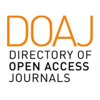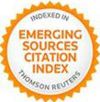Impact of Urban Heritage on social values in historic urban precincts - Public perception of the Kuttichira community, Kerala 
Abstract
Historic urban neighbourhoods endure rapid transformation due to fast-paced development proposals seldom considering the urban heritage values associated with the local community, such as the social, cultural and economic values. The study aims to examine the community perception of the impact of urban heritage on social values. The paper proposes a weighted contextual framework to maintain the social wellbeing of the community in historic urban precincts through a case study of Kuttichira. A framework constituting a set of social criteria that has an associational impact with the urban built heritage fabric was assessed and prioritized through a questionnaire survey on the perception of the Kuttichira community. The empirical results reveal relatively equal weightage across the gender groups, indicating the social impact's credibility within the community. The findings contribute to the practice of sensitive urban development catering to the community's social needs and assisting in policy-making.
Keywords
Full Text:
PDFDOI: http://dx.doi.org/10.2423/i22394303v12n1p19
References
Aas, C., Ladkin, A., & Fletcher, J. (2005). Stakeholder collaboration and heritage management. Annals of Tourism Research. https://doi.org/10.1016/j.annals.2004.04.005
Amestoy, V. A. (2013). Demand for cultural heritage. Cheltenham, UK: Edward Elgar Publishing. https://doi.org/https://doi.org/10.4337/9780857931009.00012
Andrews, D., Nonnecke, B., & Preece, J. (2003). Electronic Survey Methodology: A Case Study in Reaching Hard-to-Involve Internet Users. International Journal of Human-Computer Interaction. https://doi.org/10.1207/S15327590IJHC1602_04
Australia ICOMOS. (1979). The Australia ICOMOS Guidelines for the Conservation of Places of Cultural Significance(Burra Charter). Retrieved from http://australia.icomos.org/wp-content/uploads/Burra-Charter_1979.pdf
Bakri, A. F., Ibrahim, N., Ahmad, S. S., & Qamaruz, N. (2015). Public Perception on the Cultural Significance of Heritage Buildings in Kuala Lumpur. Procedia - Social and Behavioral Sciences, 202(December 2014), 294–302. https://doi.org/10.1016/j.sbspro.2015.08.233
Bakri, A. F., Yusuf, N. A., & Jaini, N. (2012). Managing Heritage Assets: Issues, Challenges and the Future of Historic Bukit Jugra, Selangor. Procedia - Social and Behavioral Sciences, 68, 341–352. https://doi.org/10.1016/j.sbspro.2012.12.232
Bandarin, F., & van Oers, R. (2012). The Historic Urban Landscape. The Historic Urban Landscape. https://doi.org/10.1002/9781119968115
Barbour, R., Kitzinger, J., Frankland, J., & Bloor, M. (2011). Some Issues Arising in the Systematic Analysis of Focus Group Materials. In Developing Focus Group Research. https://doi.org/10.4135/9781849208857.n10
Clark, K. (2001). From regulation to participation: Cultural heritage, sustainable development and citizenship. Forward Planning: The Functions of Cultural Heritage in a Changing Europe, 113, 117.
Cobanoglu, C., Warde, B., & Moreo, P. J. (2001). A comparison of mail, fax and web-based survey methods. International Journal of Market Research. https://doi.org/10.1177/147078530104300401
Colman, A. M., Norris, C. E., & Preston, C. C. (1997). Comparing rating scales of different lengths: Equivalence of scores from 5-point and 7-point scales. Psychological Reports. https://doi.org/10.2466/pr0.1997.80.2.355
Couper, M. P. (2000). Web surveys: A review of issues and approaches. Public Opinion Quarterly. https://doi.org/10.1086/318641
De Vaus, D. A. (2012). Surveys in social research / D.A. de Vaus. Surveys in social research.
Dowler, E., Green, J. M., Bauer, M. W., & Gasperoni, G. (2006). Assessing public perception: Issues and methods. Health, Hazards and Public Debate: Lessons for Risk Communication, (January), 40–60. https://doi.org/10.46
English Heritage. (2008). Conservation Principles: policies and guidance for the sustainable management of the historic environment in Wales. The Archaeologist.
Finstad, K. (2010). The usability metric for user experience. Interacting with Computers. https://doi.org/10.1016/j.intcom.2010.04.004
Fojut, N. (2018). Faro Convention. The Encyclopedia of Archaeological Sciences, (199), 1–4. https://doi.org/10.1002/9781119188230.saseas0239
Frondizi, R., & Frondizi, R. (1971). What is value? : An introduction to axiology.
Greffe, X. (2004). Is heritage an asset or a liability? Journal of Cultural Heritage, 5(3), 301–309. https://doi.org/10.1016/j.culher.2004.05.001
Günaydin, A. S., & Yücekaya, M. (2020). Evaluation of the history of cities in the context of spatial configuration to preview their future. Sustainable Cities and Society. https://doi.org/10.1016/j.scs.2020.102202
ICOMOS. (1931). The Athens Charter for the Restoration of Historic Monuments Adopted at the First International Congress of Architects and Technicians of Historic Monuments , Athens 1931, 7–9.
Johns, R. (2010). Likert items and scales. Survey question bank: methods fact sheet 1. Retrieved online.
Jokilehto, J. (2007). International charters on urban conservation: some thoughts on the principles expressed in current international doctrine. City &Time, 3(3), 23–42. Retrieved from http://www.ceci-br.org/novo/revista/rst/viewarticle.php?id=119
Jones, S. (2017). Wrestling with the Social Value of Heritage: Problems, Dilemmas and Opportunities. Journal of Community Archaeology and Heritage, 4(1), 21–37. https://doi.org/10.1080/20518196.2016.1193996
Labadi, S., & Logan, W. (2016). Approaches to urban heritage, development and sustainability. Urban Heritage, Development and Sustainability: International Frameworks, National and Local Governance, (January 2015), 1–20. https://doi.org/10.4324/9781315728018
Lazar, J., & Preece, J. (1999). Designing and implementing web-based surveys. Journal of Computer Information Systems.
Lewis, J. R. (1993). Multipoint Scales: Mean and Median Differences and Observed Significance Levels. International Journal of Human-Computer Interaction. https://doi.org/10.1080/10447319309526075
Likert, R. (1932). A technique for the measurement of attitudes. Archives of Psychology.
Lindquist, R. (1991). Don’t forget the pilot work! Heart and Lung: Journal of Critical Care.
Majid, M. Z. A., & McCaffer, R. (1997). Assessment of Work Performance of Maintenance Contractors in Saudi Arabia. Journal of Management in Engineering, 13(5), 91–91. https://doi.org/10.1061/(asce)0742-597x(1997)13:5(91)
Manuela, A., Pereira, T., Ana, P., & Loupa, I. (2017). Historic Urban Landscape approach and spatial planning Exploring the integration of heritage issues in local planning in Portugal Urbanism and Spatial Planning.
Mason, R. (2002). Assessing values in conservation planning: methodological issues and choices. In M. De la Torre & G. C. Institute (Eds.), Assessing the values of cultural heritage: research report (pp. 5–30). Los Angeles: Getty Conservation Institute. Retrieved from http://www.getty.edu/conservation/publications_resources/pdf_publications/values_cultural_heritage.html
Miller, G. A. (1956). The magical number seven, plus or minus two: some limits on our capacity for processing information. Psychological Review. https://doi.org/10.1037/h0043158
Moroke, T., Schoeman, C., & Schoeman, I. (2019). Developing a neighbourhood sustainability assessment model: An approach to sustainable urban development. Sustainable Cities and Society. https://doi.org/10.1016/j.scs.2019.101433
Navrud, S., & Ready, R. C. (2002). Valuing Cultural Heritage. Cheltenham, UK: Edward Elgar Publishing. https://doi.org/https://doi.org/10.4337/9781843765455
Park, S. hoon. (2016). HabitatIII and the New Urban Agenda. The Korean Association of Space and Environment Research, (58), 5–8. https://doi.org/10.19097/kaser.2016.26.4.5
Polit, D. F., & Beck, C. T. (2006). Essentials of nursing research: methods, appraisal, and utilization. Philadelphia, Pa. : Lippincott Williams & Wilkins. https://doi.org/10.1017/CBO9781107415324.004
Saaty, T. L. (1971). On polynomials and crossing numbers of complete graphs. Journal of Combinatorial Theory, Series A. https://doi.org/10.1016/0097-3165(71)90024-0
Saaty, T., & Vargas, L. (2012). Models, methods, concepts & applications of the analytic hierarchy process. … - Driven Demand and Operations Management Models, 1–20. https://doi.org/10.1007/978-1-4614-3597-6
Smith, C. B. (1997). Casting the net: Surveying an Internet population. Journal of Computer-Mediated Communication. https://doi.org/10.1111/j.1083-6101.1997.tb00064.x
Smith, T. M. F., & Cochran, W. G. (1964). Sampling Techniques, Second Edition. Applied Statistics. https://doi.org/10.2307/2985224
Steinberg, F. (1996). Conservation and rehabilitation of urban heritage in developing countries. Habitat International, 20(3), 463–475. https://doi.org/10.1016/0197-3975(96)00012-4
Symonds, P. M. (1924). On the Loss of Reliability in Ratings Due to Coarseness of the Scale. Journal of Experimental Psychology. https://doi.org/10.1037/h0074469
Udeaja, C., Trillo, C., Awuah, K. G. B., Makore, B. C. N., Patel, D. A., Mansuri, L. E., & Jha, K. N. (2020). Urban Heritage Conservation and Rapid Urbanization : Insights from Surat , India.
UNESCO. (2011). Recommendation on the Historic Urban Landscape. Records of the General Conference - 31st Session.
Van Teijlingen, E. R., Rennie, A. M., Hundley, V., & Graham, W. (2001). The importance of conducting and reporting pilot studies: The example of the Scottish Births Survey. Journal of Advanced Nursing. https://doi.org/10.1046/j.1365-2648.2001.01757.x
Yamane, T. (1967). Statistics: And Introductory Analysis, 2nd Ed., : Scottish Journal of Arts, Social Sciences and Scientific Studies.
Yun, G. W., & Trumbg, C. W. (2000). Comparative response to a survey executed by post, e-mail, & web form. Journal of Computer-Mediated Communication. https://doi.org/10.1111/j.1083-6101.2000.tb00112.x
Yung, E. H. K., & Chan, E. H. W. (2011). Problem issues of public participation in built-heritage conservation: Two controversial cases in Hong Kong. Habitat International, 35(3), 457–466. https://doi.org/10.1016/j.habitatint.2010.12.004
Zhang, Y. (2000). Using the Internet for survey research: A case study. Journal of the American Society for Information Science and Technology. https://doi.org/10.1002/(SICI)1097-4571(2000)51:1<57::AID-ASI9>3.0.CO;2-W
Zube, E. H., Sell, J. L., & Taylor, J. G. (1982). Landscape perception: Research, application and theory. Landscape Planning, 9(1), 1–33. https://doi.org/10.1016/0304-3924(82)90009-0
Article Metrics
Metrics powered by PLOS ALM
Refbacks
Copyright (c) 2022 Shahim Abdurahiman, Kasthurba A. K., Afifa Nuzhat

This work is licensed under a Creative Commons Attribution-NonCommercial-NoDerivatives 4.0 International License.
SCIRES-IT, e-ISSN 2239-4303
Journal founded by Virginia Valzano





